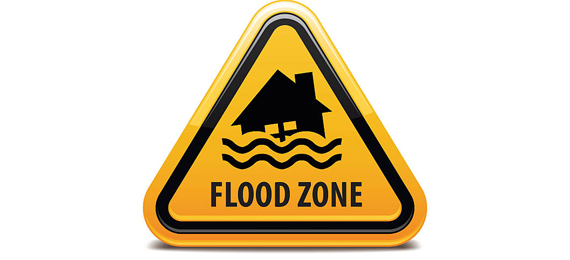
What causes floods? Why is Florida experiencing so much flooding while Montana receives the least amount of flood? Find out five surprising facts about floods and how you can predict floods with this quiz.
What Are the Causes of Floods?
Floods have become frequent and disastrous in recent years. According to WHO, floods cause 80-90% of natural disasters in the world.
#What Is a Flash Flood?
Every state has rivers, canals, streams, dams, roads, and sewage systems. The systems are built, keeping in mind the average rainfall a location receives. But when an unexpected heavy rain hits these areas, the drainage systems built are either small or loaded with the garbage that prevents the water from draining into the ocean. Flash floods create the most losses because it’s impossible to predict them accurately, and last-minute evacuation plans result in damage to life and property.
How Are Floods Caused?
- A. Rainfall
- B. Global Warming
- C. Sea Storms
- D. All of the Above
#What Is a River Flood?
Ice caps melting due to global warming, thawing in spring, and consistent rain can contribute to river floods. While meteorologists track the rainfall, forecasting icebergs and their melting speed are challenging.
#What Is a Coastal Flood?
Tsunamis caused by tropical cyclones and sea storms often flood coastal areas if they occur too close to the land. While meteorologists can predict the direction of these cyclones and sea storms to a certain extent, sudden deviations can lead to heavy losses in terms of life and property. Coastal inhabitants are requested to stay off the ocean during these times.
Why Do Floods Happen?
Apart from the above, floods can occur for several reasons such as:
# Infrastructures: Cracked or weak dams can give out during heavy rains and lead to flooding in the monsoon season. Collapsed bridges can divert the river current into the city a flash flood.
#Environmental Damages: Tress can reduce the speed of overflowing water but with deforestation, water going downhill hits valley residents at an unstoppable rate. Global warming has caused icebergs to melt and increased sea levels. Apart from that, polluting the ocean and air have led to acidic rain. Floods caused by acidic water result in long-term damages to flora and fauna and infections in humans.
#Constructions: Mountains play a crucial role in bringing rain. Mining these mountains and downsizing their peaks have led rain-bearing clouds to create a downpour at irregular intervals. Steep slopes contribute to the speed of the flood too.
#Transportation: Huge vessels in the ocean contribute to tectonic plate movements, the prime factor behind tsunamis. Do you know that a 2 feet high flood is enough to wash away a car?
# Blocked Sewage: Land pollution and lack of maintenance can block sewage systems in big cities. Rainwater or even a minor water accident in skyscrapers could lead to a flood affecting the inhabitants in the basement.
Where Do Floods Occur?
Floods can occur anywhere in the world regardless of the climate and environment. Did you know that the western part of the Sahara, the largest desert in the world, was flooded in 2003? Dry areas are more prone to flooding due to the lack of preparedness. Thus, it takes less rain to flood dry areas than wetlands.
Can We Predict Floods?
We often get information about floods through news channels and social media. Meteorologists use a lot of statistical and technological measures to ascertain floods. The main factors they consider are; rainfall, the soil’s capacity to hold water, and the drainage system. Though we cannot predict natural floods, staying informed about the strength of dams, bridges, deforestation, and air/ water pollution can reduce the damages caused by flash floods to a greater extent.
Changes in water color, debris from uphill, clogged roads also indicate an upcoming flood. Find out how to be safe during a flood with another quiz.